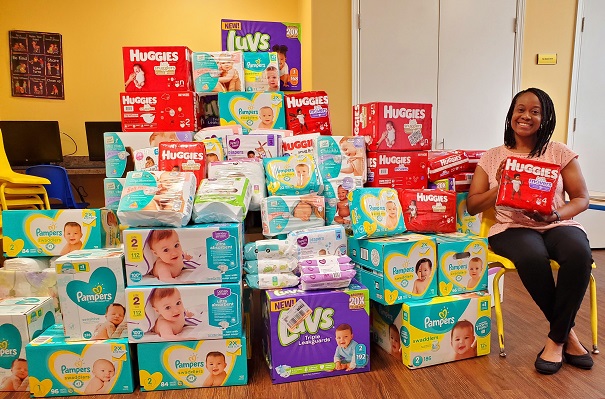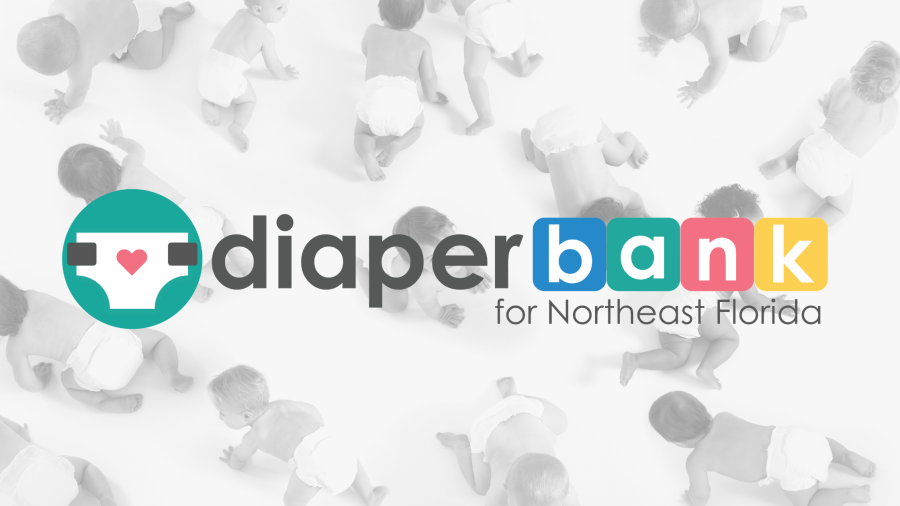 Families who were already struggling to afford basic essential needs during the pandemic are now facing a heavier burden as the price of diapers rises nearly 14 percent, and companies have stated prices will rise again. Furthermore, diapers are taxed in 36 states, including Florida, between 2.5 percent and 7 percent. Anytime there is an increase in the cost of material basic necessities, it impacts people living in poverty and those who lack the money necessary to meet their basic needs.
Families who were already struggling to afford basic essential needs during the pandemic are now facing a heavier burden as the price of diapers rises nearly 14 percent, and companies have stated prices will rise again. Furthermore, diapers are taxed in 36 states, including Florida, between 2.5 percent and 7 percent. Anytime there is an increase in the cost of material basic necessities, it impacts people living in poverty and those who lack the money necessary to meet their basic needs.
According to the National Diaper Bank Network, one in three U.S. families experienced diaper need before the pandemic. Diaper need is defined as the lack of a sufficient supply of diapers to keep a baby or toddler clean, dry and healthy. Why is a product so fundamentally necessary and vital to a child’s health so difficult to buy? One reason could be the fact that federal assistance programs, designed to help low-income families purchase basic essential needs, do not recognize diapers as an essential need.
A gap in federal safety net programs such as Women, Infants, and Children (WIC) and Supplemental Nutrition Assistance Program (SNAP; food stamps) contribute to the difficulties of buying diapers, as these programs cannot be used to purchase diapers or baby wipes. A 2017 study conducted by the National Diaper Bank Network and its founding partner Huggies, revealed that two in five (39%) families will stretch diapers by keeping their children in the same diaper longer. Research also tells us that this practice leads to serious health risks including skin rashes and urinary tract infections. In dire situations, many families will take drastic measures such as reusing a dirty diaper or making diapers out of newspapers, paper towels, or plastic shopping bags.
The National Diaper Bank Network reported an 86 percent increase on average in the number of diapers distributed to children and families during the pandemic as compared to pre-pandemic figures. Before the pandemic, diapers cost $70 to $80 per month per child, and low-income families could spend on average 14 percent of their after-tax income on diapers. For many of these families, decisions often come down to buying food or diapers. According to the most recently released ALICE (Asset Limited, Income Constrained, Employed) report, more than a third of Northeast Florida households struggled to buy basic needs such as housing, child care, food, transportation, and healthcare before the pandemic. Approximately 27 percent of households located in the Northeast Florida region are considered ALICE with an additional 11 percent living in poverty.
 Some might argue that families who struggle to buy disposable diapers should simply use cloth diapers. However, cloth diapers are sometimes not an option for families. Most childcare centers require parents to leave a day’s supply of disposable diapers. Before the pandemic, one in five families reported missing work or school because they lacked the diapers required to leave their child in daycare. Many families who experience diaper need may also have limited access to washing machines or the funds needed for frequent trips to a public laundromat. In addition, many public laundromats do not permit the washing of soiled diapers in their machines. The bottom line is that every family should have access to an adequate supply of diapers to keep their baby clean, healthy, and happy.
Some might argue that families who struggle to buy disposable diapers should simply use cloth diapers. However, cloth diapers are sometimes not an option for families. Most childcare centers require parents to leave a day’s supply of disposable diapers. Before the pandemic, one in five families reported missing work or school because they lacked the diapers required to leave their child in daycare. Many families who experience diaper need may also have limited access to washing machines or the funds needed for frequent trips to a public laundromat. In addition, many public laundromats do not permit the washing of soiled diapers in their machines. The bottom line is that every family should have access to an adequate supply of diapers to keep their baby clean, healthy, and happy.
As the economic impact of the pandemic continues to ripple across the country, more families are seeking the assistance of diaper banks. Locally, the Diaper Bank for Northeast Florida has seen an increase in requests from churches, social service agencies, and case managers from all across Northeast Florida who are seeking diapers on behalf of families in need. The diaper bank has distributed over 100,000 diapers and served over 3,000 families this year.
The issue of diaper need highlighted by the National Diaper Bank Network and its expanding member network of 200+ diaper banks provide a meaningful picture of how one small thing can have such a life-changing impact on children and families. Financial contributions made to diaper banks enable the direct purchase of diapers through innovative, cost-saving programs. Diaper drives hosted by individuals, special interest groups or businesses also offer a supportive effort to distribute diapers to local families who need them the most.
The issue of diaper need highlighted by the National Diaper Bank Network and its expanding member network of 200+ diaper banks provides a meaningful picture of how one small thing can have such a life-changing impact on children and families. Financial contributions made to diaper banks enable the direct purchase of diapers through innovative, cost-saving programs. Diaper drives hosted by individuals, special interest groups, or businesses also offer a supportive effort to distribute diapers to local families who need them the most.
There are many ways you can help local families and support the Diaper Bank for Northeast Florida.
- Host your own diaper drive and donate the products to the Diaper Bank for Northeast Florida.
- Purchase diapers from the Amazon Wish List. Items purchased online will be delivered directly to the Diaper Bank.
- Make an online donation to help cover the cost of purchasing diapers.
- Spread the word! Tell your family, friends, and coworkers about this new initiative to tackle diaper need in our community.
Together, we can help “wipe out” diaper need in Northeast Florida!
For more information about the Diaper Bank for Northeast Florida, visit jaxdiaperbank.com. For more information about the National Diaper Bank Network, visit nationaldiaperbanknetwork.org. National Diaper Need Awareness Week is September 27–October 2, 2021.


About the Author
Crystal Parks is a Jacksonville native and Founder of the Diaper Bank for Northeast Florida, also known as Jax Diaper Bank. She founded the Diaper Bank for Northeast Florida in October 2019 after learning about the issue of diaper need and wanting to take action to address this issue. After searching online for a local diaper bank and realizing there were none, Crystal decided to start one herself! She currently lives in Mandarin with her husband, Derrick, and their son Adrian. Her background is in public relations, special events, and nonprofit fundraising. Prior to becoming a stay-at-home mom, Crystal worked as the Development Associate at Gateway-Steps to Recovery. You can follow the Diaper Bank for Northeast Florida on Facebook and on Instagram at @jaxdiaperbank.
















